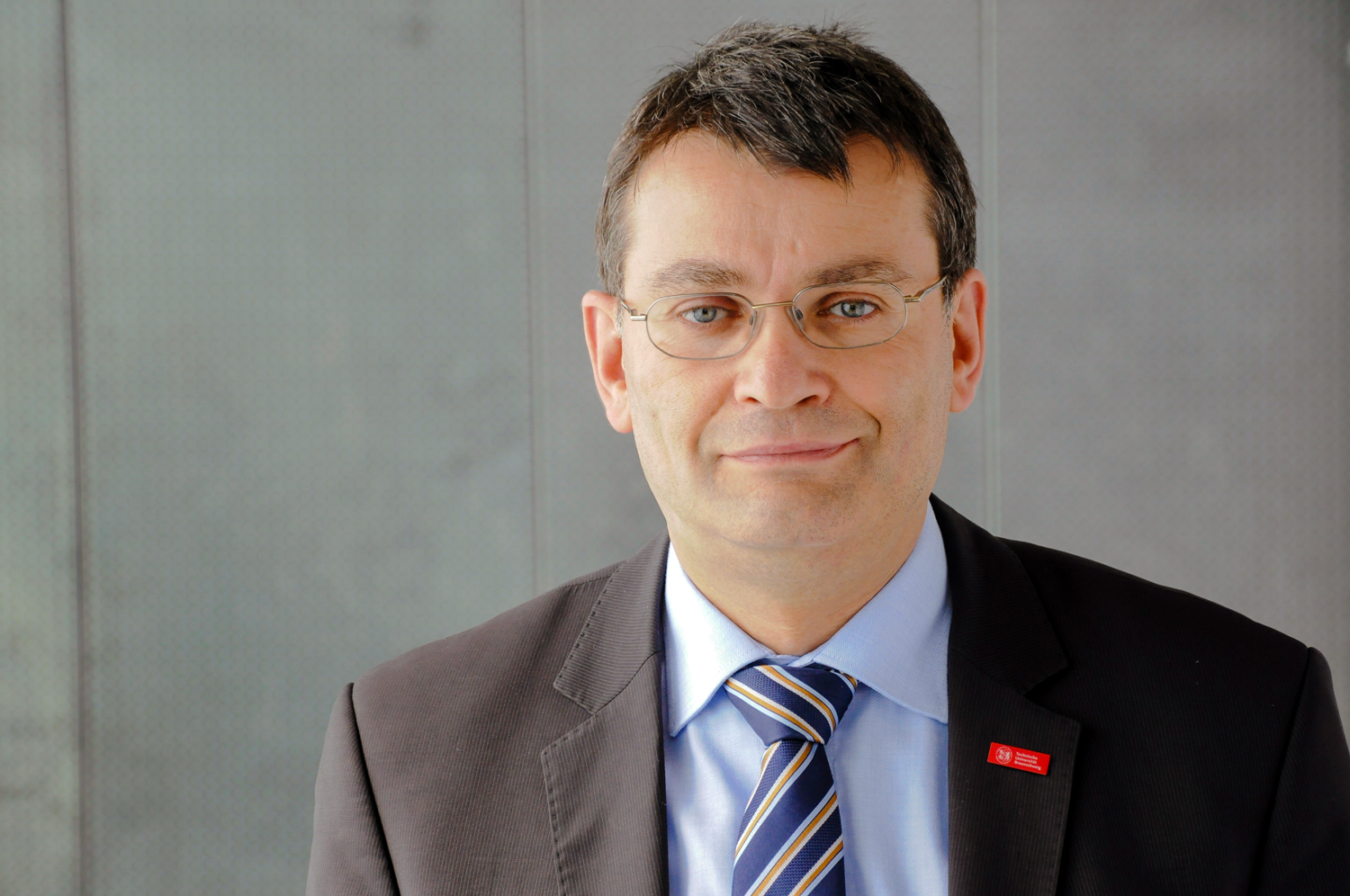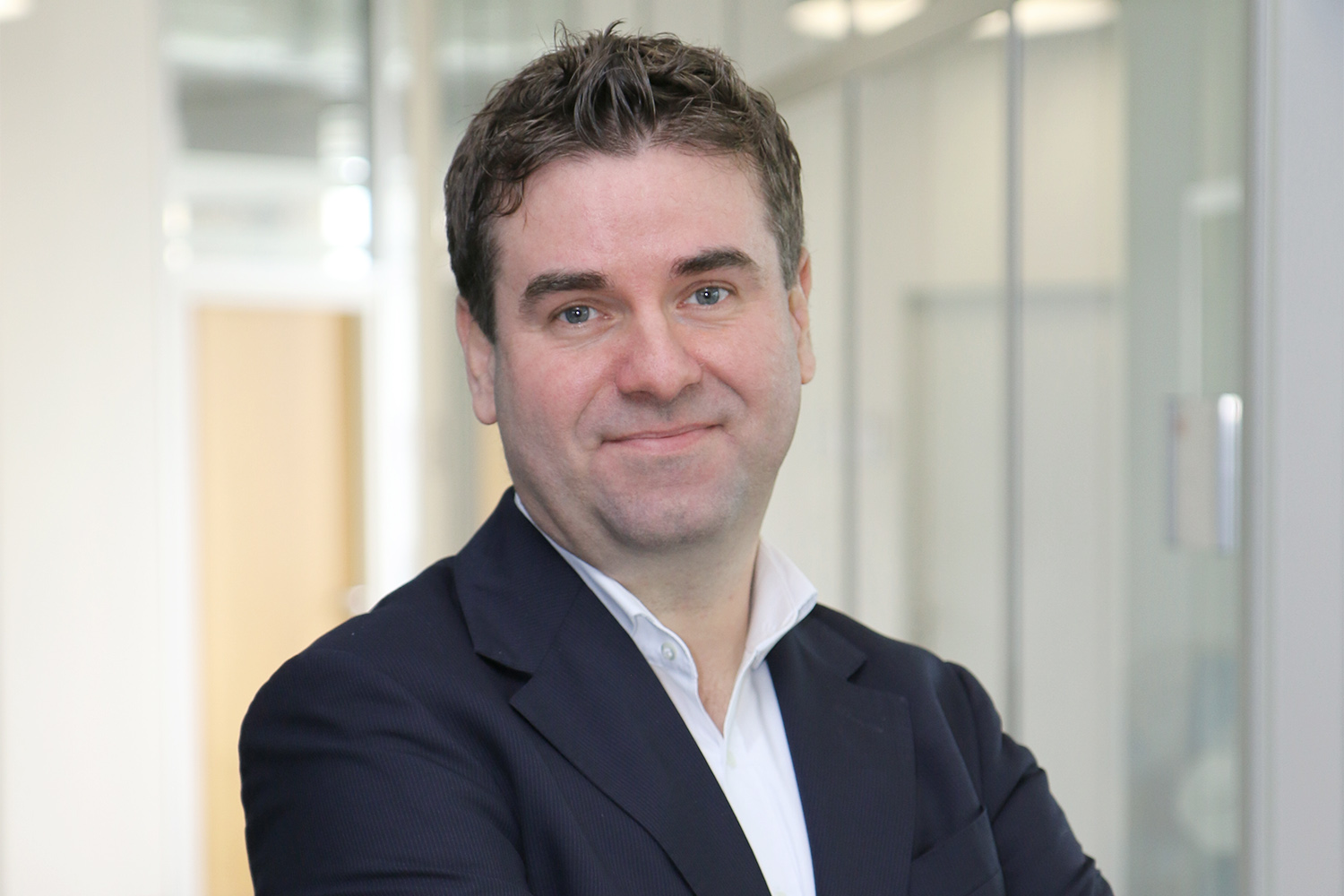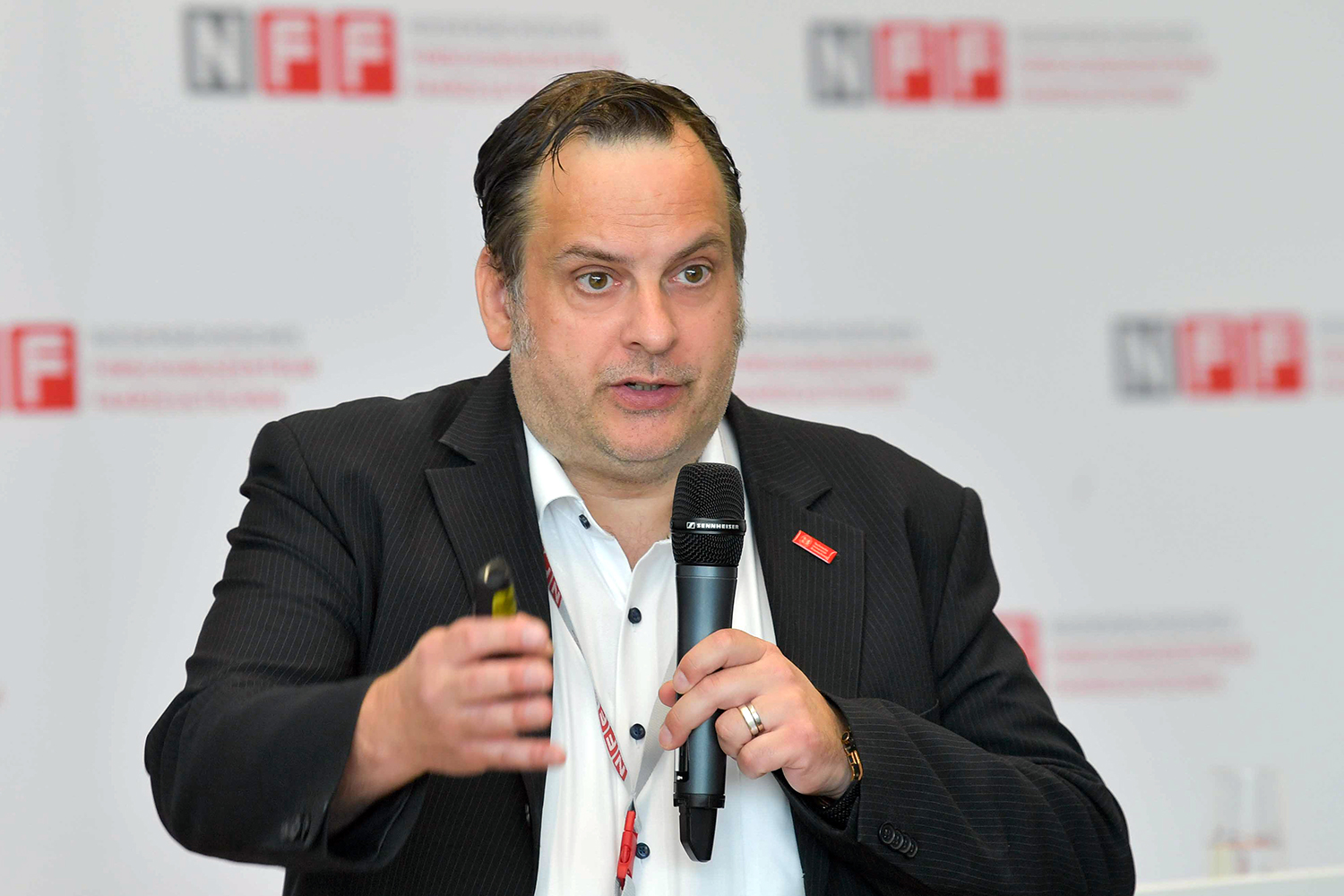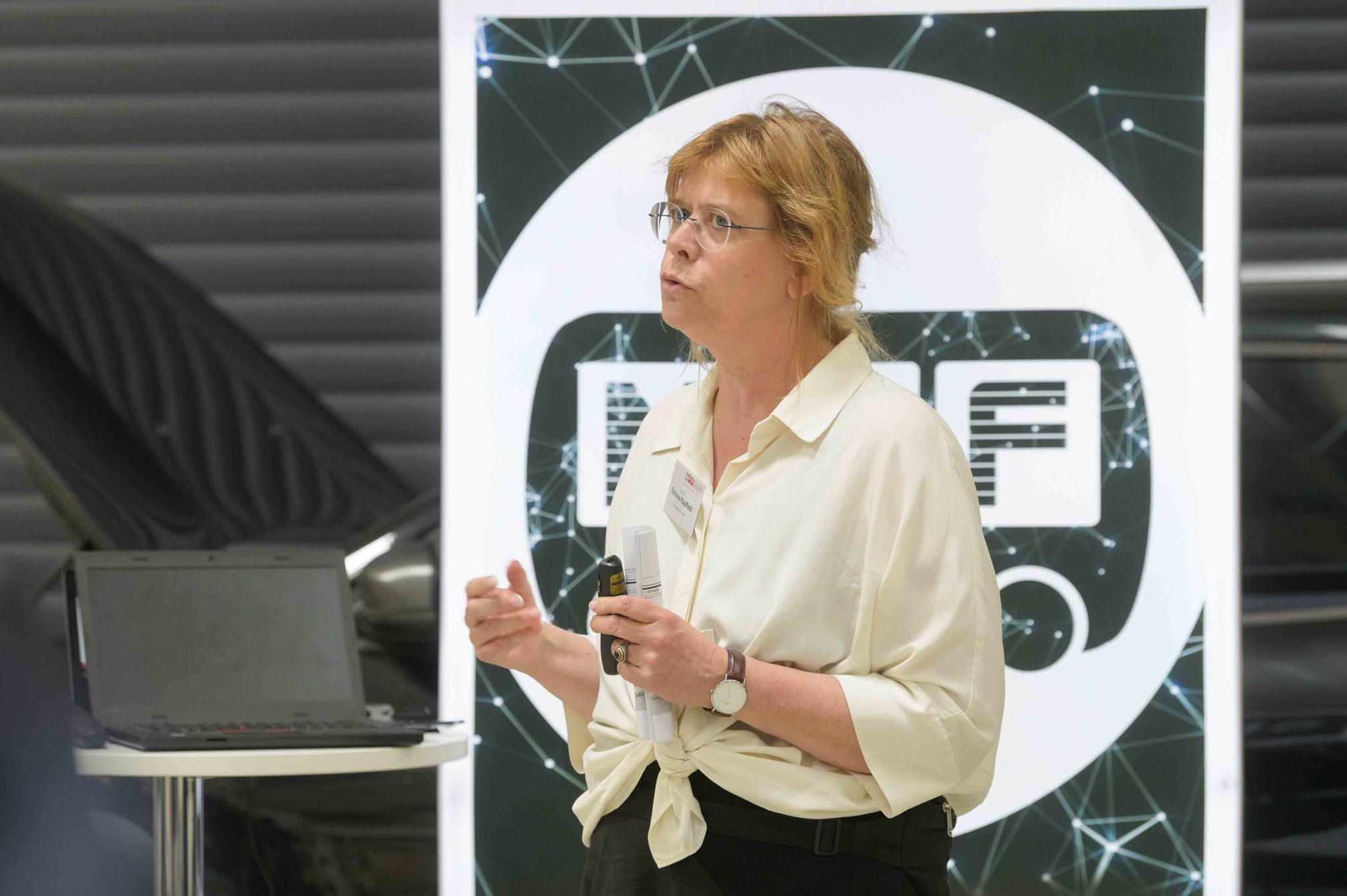How autonomous driving is set to change the way we work and the economy Interview with Prof. Simone Kauffeld and other NFF experts
Autonomous driving will bring about changes in many areas of life – but especially in the economy, for example in production, in business processes and, of course, in the work of employees. We spoke to Prof. Simone Kauffeld (Institute of Psychology), Prof. Thomas Vietor (Spokesperson of the Automotive Research Centre Niedersachsen, NFF) and Prof. David M. Woisetschläger (Institute of Automotive Economics and Industrial Production) as well as Prof. Roman Henze (Institute of Automotive Engineering).
How do you assess this change brought about by the introduction of autonomous driving?

Prof. Thomas Vietor, Head of the Institute for Engineering Design and Spokesman of the Automotive Research Centre Niedersachsen.. Picture Credits: Sophia Linge/TU Braunschweig
Prof. Thomas Vietor: Autonomous driving will bring about many changes, but it will not happen in one step. There are five different levels, three of which have already been implemented in vehicles today, which means that customers can buy them when they buy a new car. In addition to the road, we must not forget the railways for automated transport. Here, too, there are different levels, the lowest of which have already been implemented.
“Some of this change will be gradual and continuous, but there will also be major changes.” – Prof. Thomas Vietor
Autonomous driving can mean many changes in our daily lives. There are many possibilities. It is already very difficult to find drivers for public transport and freight transport. Autonomous driving offers the opportunity to create a replacement. It can also provide mobility in rural areas where infrastructure and population numbers do not yet allow for efficient public transport. New mobility concepts can also be realised in which city centres are relieved and vehicles are really used intensively and do not take up valuable parking space as they do today.
Some of this change will be gradual and continuous, but there will also be major changes where a big change is achieved in one step. If, for example, the driver is no longer needed in the vehicle itself, this would be a decisive step. With the levels of automated driving already available today, driving is only temporarily transferred from the driver to the vehicle, so there is still a need for a driver in the vehicle. In the near future, traffic will be automated in special areas such as car parks or logistics centres, i.e. areas where there are no people.
Prof. David M. Woisetschläger: It is also conceivable that automated driving will help business models such as car sharing to achieve a breakthrough. At the moment, providers’ operating costs are very high and the value proposition of flexible use cannot be sufficiently realised. Automated driving will enable vehicles to be used more in line with demand, thus reducing transaction costs for providers and customers.
What difficulties are associated with the development and introduction of autonomous driving?
Prof. Vietor: Autonomous driving means a considerable adaptation of vehicles and traffic infrastructure. The vehicle has to be equipped with additional sensors and actuators that sense the environment. This generates very large amounts of data that must be processed very quickly. The underlying algorithms need to be trained to interpret the perceived images, which in turn requires very extensive development work. The necessary memory and processing power requires extensive equipment in the vehicle itself or in the infrastructure, or in a combination or division between vehicle and infrastructure.
“It is an open question whether autonomous driving will lead to less or more traffic.” – Prof. David M. Woisetschläger
Prof. Woisetschläger: It is an open question whether autonomous driving will lead to less or more traffic and the associated congestion in the future. On the one hand, automated driving can lead to significantly more efficient mobility – both economically and ecologically. On the other hand, it is conceivable that the technology will increase the overall demand for mobility.
What areas of work and business are specifically affected by the transformation?

Prof David M. Woisetschläger, Head of the Institute of Automotive Economics and Industrial Production. Picture credits: AIP/TU Braunschweig
Prof. Woisetschläger: There are two main groups of players – those who develop vehicles and those who use them. Vehicle manufacturers and suppliers face the challenge of driving development forward without losing touch with the competition. This is a capital-intensive and risky endeavour with an uncertain outcome, especially for those companies that, for various reasons, are not in a position to shape the change.
Prof. Simone Kauffeld: Their use will also lead to major changes: Today’s job profiles, such as bus driver, taxi driver, etc., will change, but they will be replaced by new tasks, such as monitoring automated vehicles in traffic, comparable to today’s air traffic controllers. For users of autonomous driving functions, key benefits such as flexibility, convenience and safety will lead to a change in purchasing and usage behaviour.
How do companies respond to this?
Prof. Roman Henze: There are vehicle manufacturers and suppliers, companies in the IT sector and start-ups that are focusing heavily on this change. Size and profitability are important prerequisites for being able to finance this development.
“OEMs are transforming themselves from car manufacturers to providers of sustainable mobility services”. – Prof. Roman Henze

Prof Roman Henze, Head of the Institute of Automotive Engineering. Picture credits: Isabell Massel/NFF
The current approach of established providers is to climb the ladder of automated driving through incremental innovation. Some technology groups are pursuing the radical innovation approach with the aim of being able to offer technology for fully automated and driverless driving in stages. Investment in research and development as well as innovation processes for future mobility has been driven more than ever before in the early stages. Combined with the predicted changes in customer requirements, a decisive paradigm shift is taking place. The primary business of OEMs is being expanded, transforming them from vehicle manufacturers to providers of sustainable mobility services.
In terms of strategic orientation, the leading manufacturers are sticking to traditional values, but are also creating their own divisions or are open to alliances with strong IT players that can benefit from their extensive expertise in software and data processing based on artificial intelligence and user-oriented services.
What does this mean for employees, what additional skills do they need?

Prof. S. Kauffeld on news in the research field Transformation of Mobility, Work and Business Models. Picture credit: Isabell Massel/NFF
Prof. Kauffeld: In an interview study with 30 experts from production, research and development, management, politics and consulting, 40 technical and interdisciplinary skills for the value-adding process in the automotive and supplier industry were identified. In an expert workshop, they were asked how important these skills are for employees in the automotive industry today and in the future. In this context, the future is 2035 – the end of the EU vector burner.
“The skill that will be most important in the future is self-directed learning”. – Prof Simone Kauffeld
In the future, sustainable work in the circular economy, connectivity (i.e. knowledge of communication systems, e.g. car to car or car to X), handling of high-voltage systems, application of additive and generative manufacturing processes, electrochemical basics, regulatory requirements and problem-solving orientation will be particularly important skills.
In the future, manual skills will become less important in the value-adding process of the automotive industry, but not unimportant. Particularly important interdisciplinary skills in the future will be self-directed learning, virtual planning and assembly, understanding data, software skills, IT applications, data security, diversity-oriented approaches, understanding trends, driving innovation and networking (i.e. developing, maintaining and using personal and professional contacts).
The skill that will be most important in the future is self-directed learning, and this is where we can provide excellent support.
What can science contribute? Prof. Kauffeld, as an expert at TU Braunschweig, where do you start?
Prof. Kauffeld: The “VeränderungsMacher*in” training programme is an example of how science can be put into practice. “VeränderungsMacher*in” is a format that not only equips specialists with individual skills, but also enables them to actively shape change processes in companies. Over the course of six months, the training not only imparts theoretical knowledge, but also shows how these skills can be seamlessly integrated into the organisational context.
Our research in work and organisational psychology highlights the importance of the learning transfer system. The success of training programmes therefore depends not only on individual skills, but also on a well-designed learning transfer system. These ensure that the knowledge acquired is transferred to everyday working life.
Our research clearly shows that the design of the organisational working environment is critical to the success of training. The format enables a close link between top-down and bottom-up processes, which not only promotes individual learning, but also actively involves the whole organisation in the change process. In order to design holistic transformation processes, it is important to create such holistic formats and this is where science can offer a sustainable, evidence-based and therefore effective approach.
Vehicles of the future will be designed differently. The transport of the future will be different. In both areas, we are researching technology, acceptance by people, new business models and the impact on people’s work.
The Automotive Research Centre Niedersachsen (NFF) conducts research into the vehicle and mobility of the future. Both can only be realised in cooperation with various scientific disciplines from the fields of technology, society and law.
